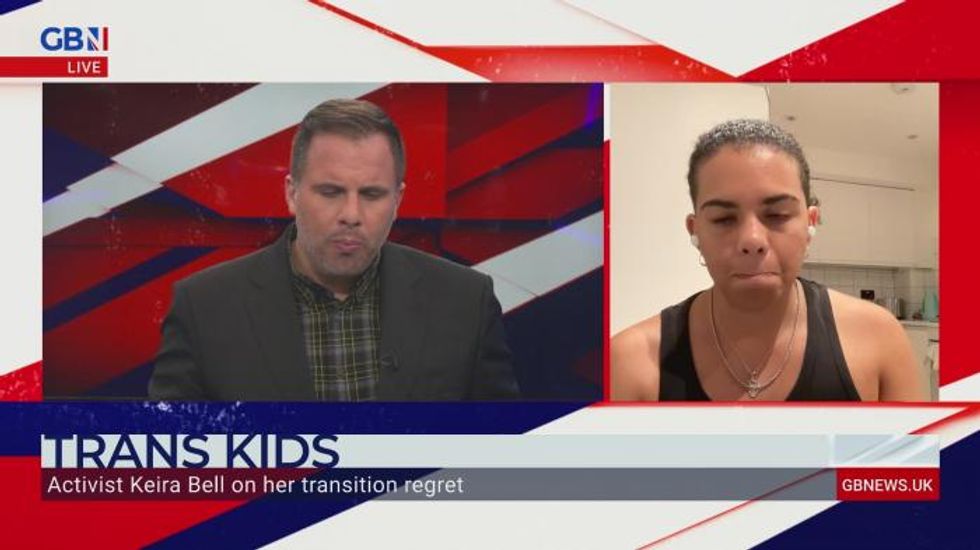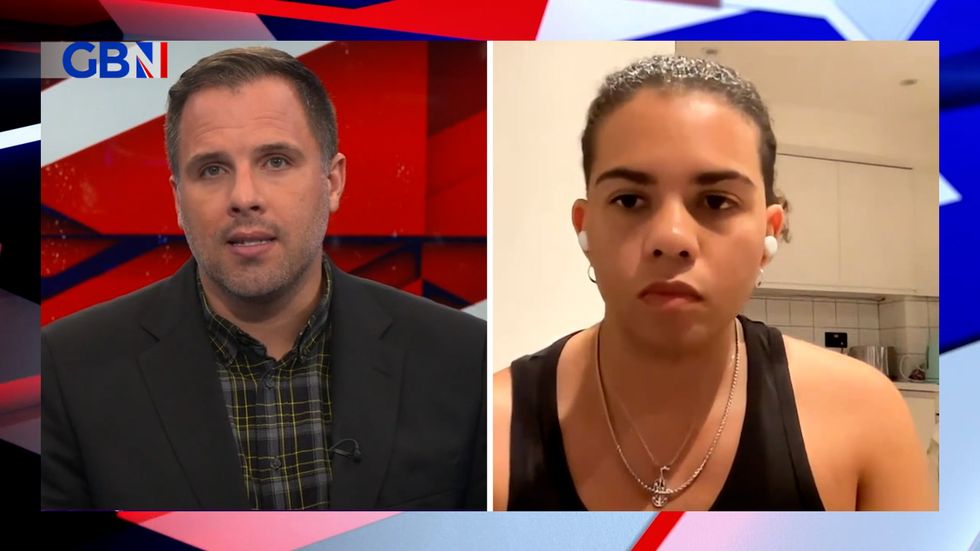Woman who 'detransitioned' after taking puberty blockers says 'there's no such thing as being born in wrong body'
Keira Bell has argued against the dangers of giving puberty blockers to children after her own experience
Don't Miss
Most Read
Trending on GB News
An activist who detransitioned after taking puberty blockers at the age of 16 says more needs to be done to tackle gender dysphoria.
Keira Bell, 25, realised she had made a mistake only after having a double mastectomy and gender reassignment surgery.
After realising her mistake, she told GB News how she can now never get her life back.
She told Dan Wootton: "I firmly believe gender dysphoria is a symptom of deeper things going on, it's as simple as that.
"There's no such thing as being born in the wrong body. It's quite shocking to me when I look back, none of the adults really noticed that or cared."
Dan Wootton and Keira Bell
GB News
She added: "I respect her completely, not only that she's speaking out as such a public figure but creatively as well. I just have tons of respect for her, it can't be easy."
A landmark ruling over the use of puberty-blocking drugs for children with gender dysphoria will not be challenged at the Supreme Court.
On Thursday, it was announced that the Court of Appeal’s decision would not be challenged at the Supreme Court as it did not “raise an arguable point of law”.
Keira brought her case against the Tavistock and Portman NHS Foundation Trust, which runs the UK’s only gender identity development service for children to the High Court.
A mother of an autistic teenager who is on the waiting list for treatment, only known as Mrs A, supported Ms Bell in the legal challenge.
In late 2020, the High Court ruled it was “highly unlikely” that a child aged 13 or under would be able to consent to hormone-blocking treatment, and that it was “very doubtful” that a child of 14 or 15 would understand the long-term consequences.
The original ruling also said that doctors “may well consider it appropriate” to get the court’s approval for any puberty blocker prescription.
But the Court of Appeal overturned this ruling last year, finding it was “inappropriate”.
In their decision, three senior judges said it was up to doctors to “exercise their judgment” about whether their patients could properly consent, adding that the original decision “placed patients, parents and clinicians in a very difficult position”.
The Lord Chief Justice Lord Burnett, sitting with Sir Geoffrey Vos and Lady Justice King, also found that the High Court’s guidance would require doctors “to suspend, or at least temper, their clinical judgment and defer to what amounts to the clinical judgment of the court”.
Following the Court of Appeal’s decision in September 2021, Ms Bell said she intended to appeal the ruling at the UK’s highest court.
But Supreme Court Justices Lord Reed, Lord Sales and Lord Stephens denied Ms Bell permission to bring the case.
A spokesperson for the Tavistock and Portman NHS Foundation Trust said: “We welcome the Supreme Court’s decision. We are proud of our hardworking, caring and thoughtful colleagues in GIDS (gender identity development service). They and the patients they support will be relieved by the end of this period of uncertainty.”
After the Supreme Court’s decision was made public on Thursday, Ms Bell said she was disappointed in the decision but “delighted at what has been achieved as a result of this case”.
She continued: “We have shone a light on the murky practices of one of the greatest medical scandals of the modern era.
“Practice and policy has changed as a result.”
Ms Bell added she felt “privileged to have played my part in the development of a more cautious approach to treating children with gender dysphoria”.
LGBT campaigners had expressed concern after the High Court’s original ruling, with the charity Stonewall arguing it was a “green light to those who want to use this as an opportunity to roll back not just the healthcare rights of trans young people, but the rights of all young people”.









